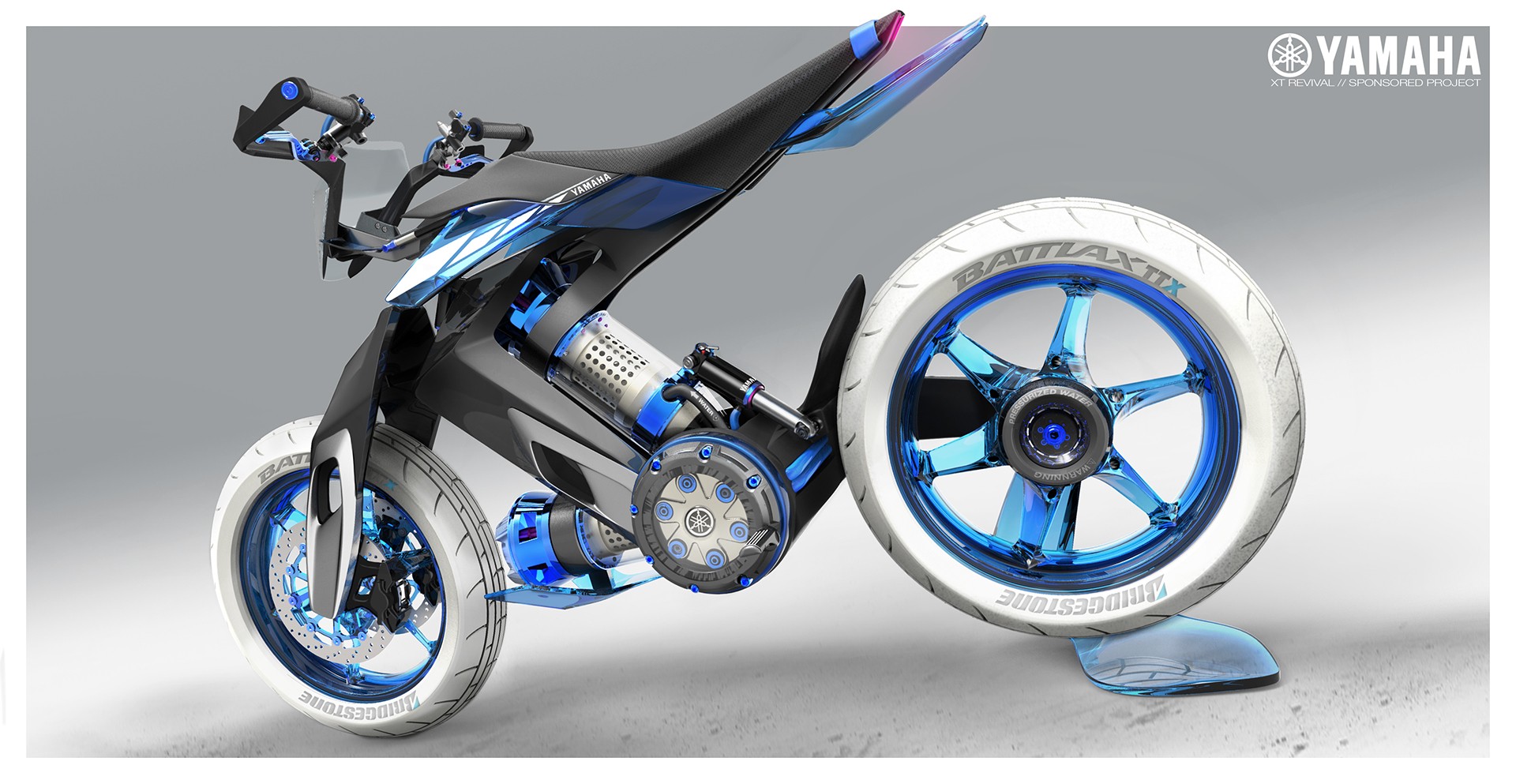
by Cristian Curmei from https://www.autoevolution.com
2025 is not so far off. But if things work out as they should, it’s possible we could see something like this XT 500 H2O on our streets. Fingers crossed for this concept.
Yamaha’s XT 500 is an iconic two-wheeler. Manufactured between 1976-1989 with a four-stroke single cylinder engine, this enduro motorcycle pushed out a top speed of 82 mph (132km/h) and 28.03 lb-ft (38 Nm) of torque.
One of the main features of the XT was that the front tire was a whole three inches larger than the rear one. This allowed for it to be equally versatile on the road and off it. It’s to this motorcycle that Maxime Lefebvre, the author of this rendering, pays tribute. But I frankly can’t see much of a resemblance. Just look at this beast of imagination.
The initial design started with a spin on the retro body style, keeping true to the shape, but giving it a more modern appeal. From there, that design was taken and modified for specific purposes, resulting in three different models. The first concept was a smart bike, the second concept a lightweight version, and a third was dubbed the “Inexhaustible.”
But that wasn’t the end. Lefebvre took a shot and got together with the Yamaha design team and after the meeting was over, decided to go nuts and truly free up his creativity.
I wish I had a meme right now with Morpheus saying, “What if I told you that this motorcycle is designed to function only on water?” Nothing else. That’s right. The design includes an engine made to run solely on water. Composed of many smaller sections, each with its own specific function to keep you moving, but all of it centered around H2O as the fuel.
It should work like this. The main water tank holds the water and from there a pump feeds it into a pressure system where it can be used to power the engine at the rear of the bike. We have absolutely no details about the way the engine functions, and I’m sure this is no coincidence. If I designed a motor to function on water, only a select few would know about it.
But we have some info as to the components within the system. We can guess that the engine builds pressure and then shoots this pressurized water at the motor, basically the same way a water-wheel works.To do so the flow of water passes through an injector to make sure no pressure is lost.
The result of this type of engine should be a lack in noise. And because it runs on water, it’s considered environmentally sustainable.
The body has the classic enduro look with a few accents to make it more futuristic. After all, it is 2025. We can see a use of white, blue and black to highlight and designate components.
Let’s talk a little about the body and accents for the bike. The front fork breaks away from the classic tube design we’re used to. Large disk brakes and Yamaha calipers on both sides of the front wheel let you know this thing means business. Something I found neat was the steering mechanism for the bike. It doesn’t seem to be steered by conventional means. The handlebars and fork are not attached in any direct way. This leads me to believe that when you turn the handlebars a motor within the frame should take care of steering.
The rear swingarm houses the injection components of the motor that I mentioned earlier, but also the return system to pull unused water back into your tank. This same water is just to be used again, creating an endless flow of power. To take care of suspension, a heavy duty springless shock absorber gives you a smooth ride no matter your terrain.
The blue wheels have no specific purpose, they’re just for show, to accent the overall use of water in the bike. Another color variation exists too, dubbed the collector edition, it includes yellows instead of whites, and purples instead of blues.
If this thing ever makes out of the concept stages and into production, it will be marketed as inexpensive, lightweight, and within everyone’s reach.
